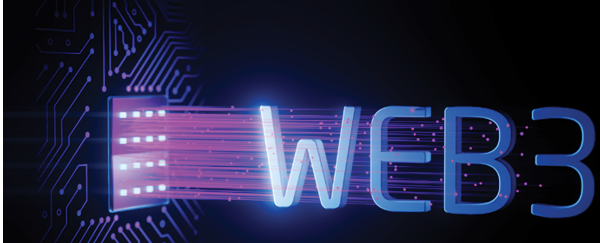

Since 2010, the Global Law Experts annual awards have been celebrating excellence, innovation and performance across the legal communities from around the world.
posted 11 months ago
In the dynamic realm of technology, “Web 3.0” (also known as “Web3”) has become the talk of the town, catching the eye of corporations eager to embrace the next wave of the internet. However, amidst the excitement, there is a fair share of confusion about what exactly Web 3.0 truly entails and why businesses should be paying close attention to its emergence.
Decoding the Evolution: From Web 1.0 to Web 2.0
To truly understand the significance of Web 3.0, it is crucial to take a step back and reflect on its predecessors – Web 1.0 and Web 2.0.
Web 1.0, back in the 1990s and early 2000s, was the era of read-only content consumption. Static websites, like online encyclopedias, served as information repositories with limited user interaction. Web 1.0 is essentially where users only get to search and consume information online without other forms of interaction available.
Fast forward to the mid-2000s, and Web 2.0 emerged, allowing users not just to consume but to also actively participate, create, and share content on platforms like Facebook and Twitter. This is an era where online forums, blogs and social media took off – platforms where users are able to interact with one another, through sharing of contents, commenting, reacting to contents, etc.
Challenges of Web 2.0: Navigating Data Ownership and Trust Issues
Despite the progress made with Web 2.0, concerns surfaced around data ownership, content control, and trust in platform governance. In spite of the highly interactive features introduced by the platforms, users realized that platforms technically controlled or owned the content they created, sparking fears of potential loss of control, followers, and content if faced with a platform ban. Remember the #DeleteFacebook movement? It exemplified the growing unease with the centralized control of user data and content on these platforms. Web 3.0 is all about solving these particular issues.
Enter Web 3.0: Empowering Users through Decentralization
Web 3.0, though its definition remains somewhat elusive, can be conceptualized as a decentralized and open internet infrastructure constructed on blockchain technology. Web 3.0 seeks the restoration of control to users, empowering them to create and host content directly on blockchain platforms, thereby reclaiming a significant degree of autonomy in their online interactions.
That being said, while there are iterations of Web 3.0 in the market today, there is no truly mature Web 3.0. There is consensus of how Web 3.0 should be, but the current iterations are a long way from full realisation.
At the core of Web 3.0 are smart contracts – digital contracts stored on a blockchain that execute automatically when predefined criteria, terms and/or conditions are met. By automating predefined conditions and protocols, smart contracts eliminate the need for traditional intermediaries, enabling a more direct and secure exchange of information, assets, and services. Thanks to underlying blockchain technologies, it is almost impossible to alter the record once transactions executed by the smart contract have been made. With the help of smart contracts, reliance on centralised platforms can be minimised and thereby reducing the risk of power concentration in the Big Tech experienced in usage of Web 2.0.
Challenges of Web 3.0: Empowering Users with Responsibility
However great the promises of Web 3.0 are, it comes with their own set of challenges. The decentralized nature of blockchains, a core tenet of Web 3.0, is under scrutiny. Critics argue that any degree of centralized control within blockchains negates their core purpose, rendering them akin to the very same Web 2.0 they aim to replace. Smart contracts on the other hand, while a promising solution, are only as intelligent as their code, introducing potential vulnerabilities and imperfections. A bug in a smart contract could lead to unintended consequences, highlighting the need for robust security measures and code audits.
Charting the Course: Navigating the Imperfect Journey of Web 3.0
While Web 3.0 holds immense promise, it is undeniable that Web 3.0 is still in its early stages, with hurdles and uncertainties that need thoughtful navigation. Corporations, recognizing the growing importance of concerns related to content ownership, data protection, and user control, should definitely invest effort in understanding Web 3.0 and exploring how to leverage its potential benefits.
As we embark on this journey into the decentralized future, a balanced perspective is crucial – Web 3.0 offers solutions to critical issues but is not without imperfections. Corporations should approach Web 3.0 with an understanding of both its promises and the challenges it faces, ensuring a thoughtful integration of this evolving paradigm shift.
“For comprehensive guidance and legal insights regarding the dynamic landscape of Web 3.0, our team of experts is ready to assist you. Feel free to reach out to us for further assistance and a tailored approach to navigating the complexities of this decentralized future. We look forward to being your trusted partner on this transformative journey.”
About the Authors
Ong Johnson
Partner
Head of Technology Practice Group
Transactions and Dispute Resolution, Technology, Media & Telecommunications, Intellectual Property, Fintech, Privacy and Cybersecurity
Halim Hong & Quek
[email protected]
Lo Khai Yi
Partner
Co-Head of Technology Practice Group
Technology, Media & Telecommunications, Intellectual Property, Corporate/M&A, Projects and Infrastructure, Privacy and Cybersecurity
Halim Hong & Quek
[email protected]
posted 19 hours ago
posted 22 hours ago
posted 2 days ago
posted 2 days ago
posted 2 days ago
posted 2 days ago
No results available
ResetSign up for the latest advisory briefings and news within Global Advisory Experts’ community, as well as a whole host of features, editorial and conference updates direct to your email inbox.
Naturally you can unsubscribe at any time.
Global Advisory Experts is dedicated to providing exceptional advisory services to clients around the world. With a vast network of highly skilled and experienced advisers, we are committed to delivering innovative and tailored solutions to meet the diverse needs of our clients in various jurisdictions.